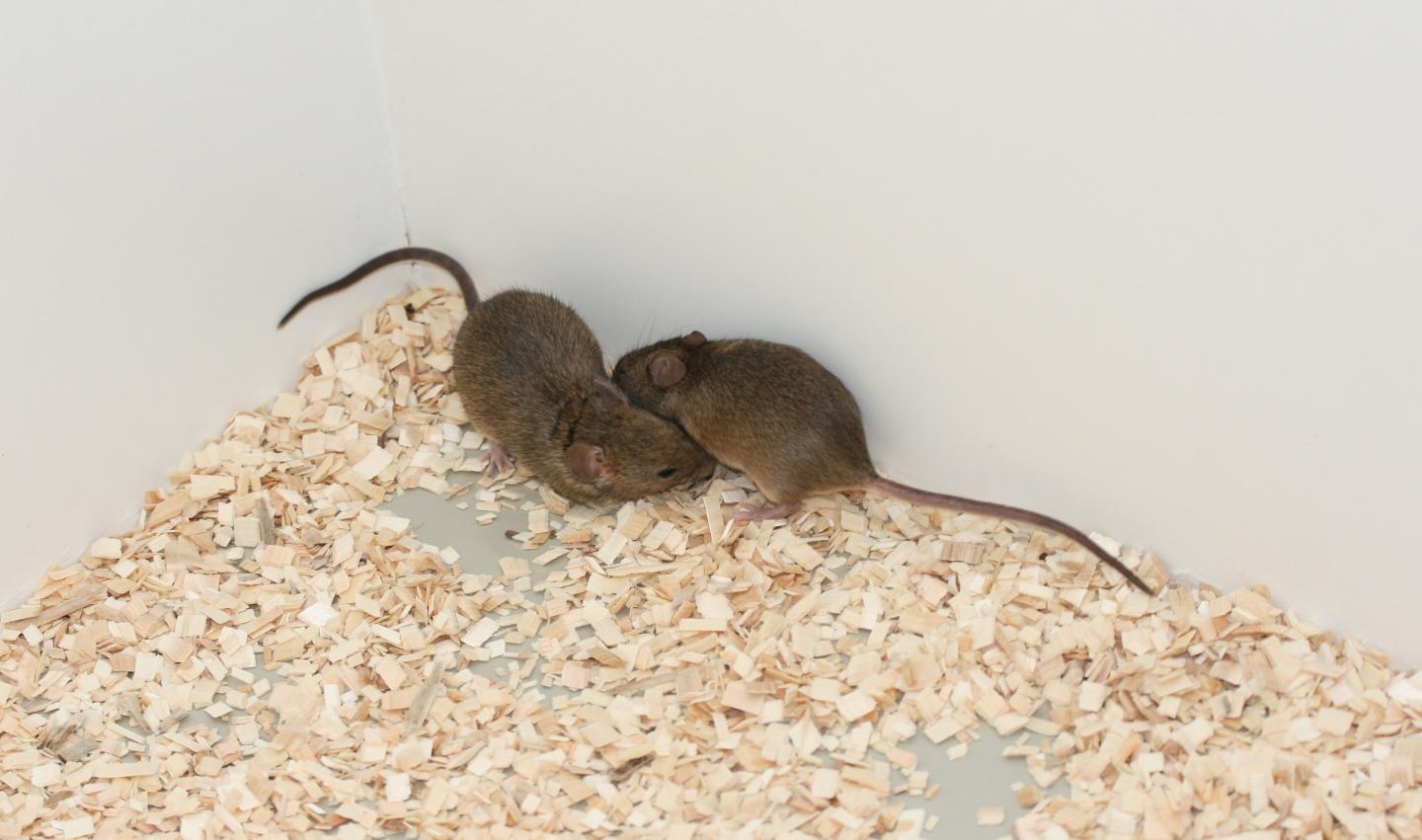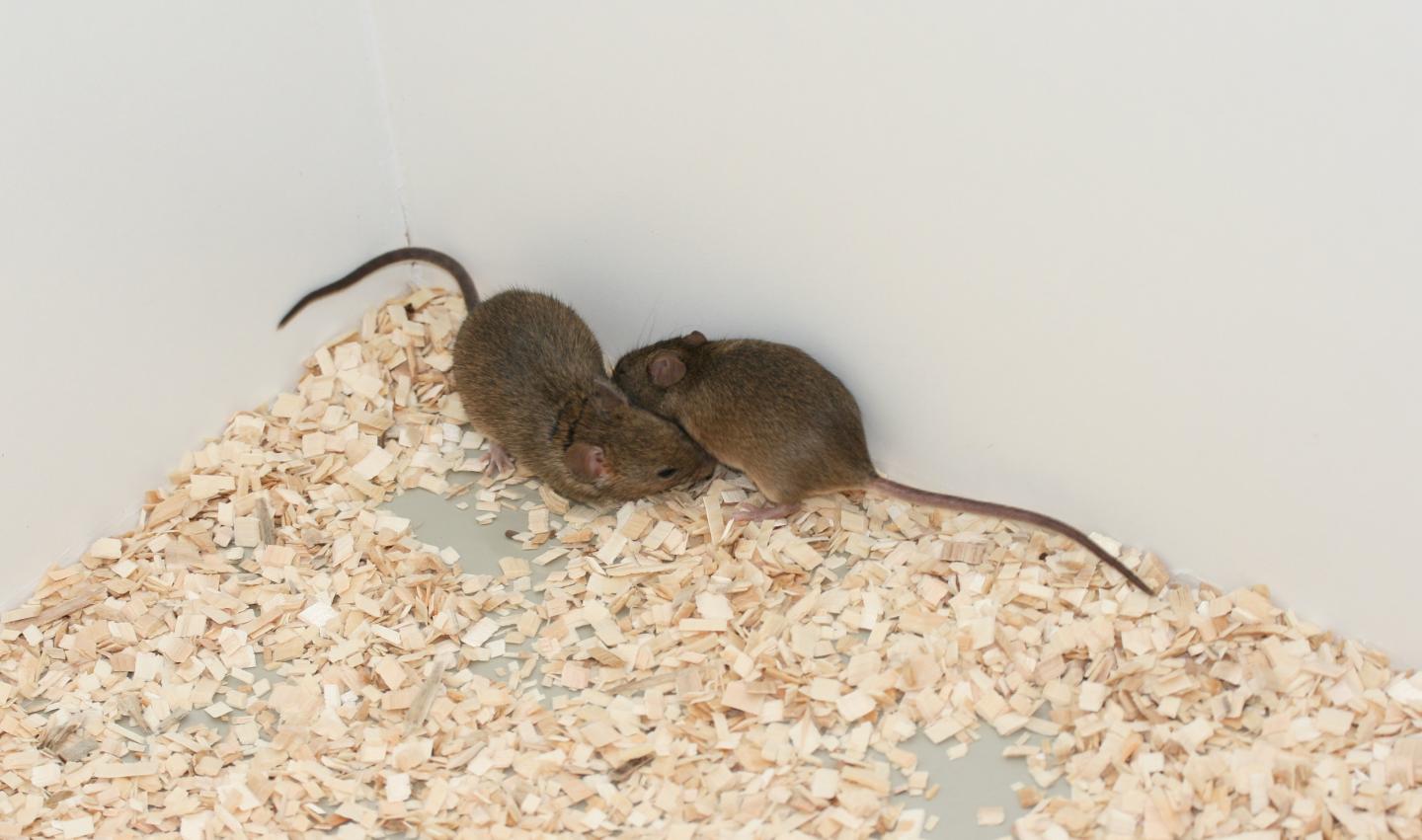
Credit: Kerstin Thonhauser/Vetmeduni Vienna
The urine of house mice, unlike humans, contains large amounts of proteins, which are mainly major urinary proteins or MUPs. These proteins function to stabilize the release of volatile pheromones from urinary scent marks. MUP genes occur in a large cluster in mice, and there are 21 different MUP genes, whereas humans have only one MUP gene, which is no longer functional.
Until now, researchers have assumed that MUP genes in wild populations of mice were highly variable, and that MUP proteins provide a unique individual signature or 'barcode' that mediates individual and kin recognition. Studies to confirm this critical assumption have nevertheless been lacking. Researchers from Vetmeduni Vienna now analysed the MUP genes in the respective cluster as well as the proteins. Their findings directly challenge the MUP barcode hypothesis.
Barcode hypothesis so far lacked critical tests
"We are interested in the genetic bases of chemical communication and kin recognition. We have been focusing on MUPs because they have are often claimed to provide the genetic basis of kin recognition and inbreeding avoidance, explains Dustin Penn from Konrad Lorenz Institute of Ethology at Vetmeduni Vienna.
The barcode hypothesis presumes that MUP genes and proteins are highly variable in wild populations, and that individuals produce their own unique and stable combination of MUP proteins. Penn's team and proteomic specialists at Vetmeduni Vienna now provide evidence that directly challenge this hypothesis for the first time.
Kin recognition must be controlled by other mechanisms
The team started by analysing the MUP gene cluster of wild house mice by direct DNA sequencing. Rather than finding highly variable sequences, they discovered that individuals show no variation at MUP genes whatsoever. Moreover, they found unusually low genetic variation through the entire MUP cluster. "We initially wondered how natural selection could maintain high levels of variation of MUP genes, but now we have to explain the remarkable lack of variation. Because of the high sequence similarity or homology of different MUP genes, we were sceptical that they could simultaneously show high variability among individuals", says Penn.
The team additionally discovered that conventional gel-based techniques do not separate different MUP proteins, which posed a difficult technical challenge for measuring the regulation of different proteins. Proteins had to be analysed with new, state-of-the-art mass spectroscopy instead. Using this gel-free method they found that individuals show almost no variation in the number of MUP proteins expressed.
MUP expression depends upon social context
The assumption that MUPs provide a stable individual barcode was also refuted by Penn and his collaborators. The new proteomic methods made it possible to identify the different MUPs expressed in individual urine samples over time. "Our results show that mice change the MUPs they produce depending upon a social context. The number of MUPs in the urine of male house mice is surprisingly dynamic. Future experiments are now needed to determine genetic basis for kin recognition and why males differentially regulate MUPs depending upon the social and reproductive contexts", says Penn.
###
Service:
The article "Diversity of major urinary proteins (MUPs) in wild house mice" by Michaela Thoß, Viktoria Enk, Hans Yu, Ingrid Miller, Kenneth C. Luzynski, Boglarka Balint, Steve Smith, Ebrahim Razzazi-Fazeli and Dustin J. Penn was published in Scientific Reports. http://www.nature.com/articles/srep38378
The article "Regulation of highly homologous major urinary proteins in house mice quantified with label-free methods" by Michaela Thoß, Christian Baumann, Kenneth C. Luzynski, Ebrahim Razzazi-Fazeli and Dustin J. Penn was published in Molecular Biosystems. http://pubs.rsc.org/en/content/articlelanding/2016/mb/c6mb00278a#!divAbstract
About the University of Veterinary Medicine, Vienna
The University of Veterinary Medicine, Vienna in Austria is one of the leading academic and research institutions in the field of Veterinary Sciences in Europe. About 1,300 employees and 2,300 students work on the campus in the north of Vienna which also houses five university clinics and various research sites. Outside of Vienna the university operates Teaching and Research Farms. http://www.vetmeduni.ac.at
Scientific Contact:
Dustin Penn
Konrad Lorenz Institute of Ethology
University of Veterinary Medicine Vienna (Vetmeduni Vienna)
T +43 1 25077-7323
[email protected]
Released by:
Georg Mair
Science Communication / Corporate Communications
University of Veterinary Medicine Vienna (Vetmeduni Vienna)
T +43 1 25077-1165
[email protected]
Media Contact
Dustin Penn
[email protected]
43-125-077-7323
http://www.vetmeduni.ac.at
############
Story Source: Materials provided by Scienmag





